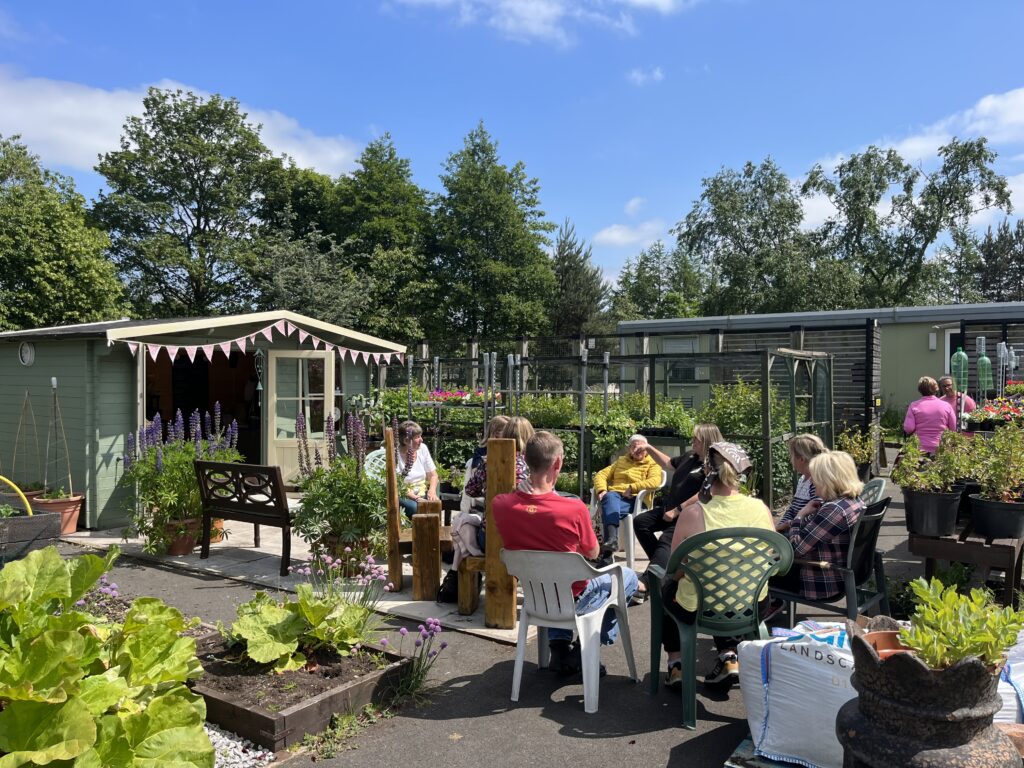Power in partnerships: Communities leading the way to better health
Local Trust and the NHS Confederation are launching a programme of action research to build community-led approaches to health.
Our health isn’t just shaped by what happens in a doctor’s surgery or hospital. Far more often, it’s the world around us – our homes, relationships, jobs, and neighbourhoods – that has the greatest influence. These social determinants of health, have been recognised by the NHS’ leadership for a long time and increasingly service planning is beginning to reflect this appreciation. However, the NHS remains unable to address this alone and attempts to empower communities are far too often undermined by its own infrastructure and competing priorities.
Thankfully, these are exactly the kinds of issues communities have been tackling head-on in Big Local areas for years.
That’s why Local Trust and the NHS Confederation are launching a new programme of action research as the next stage of our partnership. Together, we’re exploring how we can support more community-led, hyperlocal approaches to health – putting power in the hands of the people who know their neighbourhoods best.
We believe that when communities lead, better health follows.”
A new way of working for better health
Communities have the knowledge, experience and determination to take on some of the biggest health challenges we face today. We’ve seen this clearly in Big Local areas, where local people have developed creative, practical responses to long-standing issues.
Take Par Bay in Cornwall as an example. This coastal community of 9,000 residents has been blighted by the loss of industry and the decline of local infrastructure, resulting in a lack of economic opportunities. The area sees vast health inequalities across its population.
In response, the community–led Par Bay Big Local (now run by Par Bay Community Trust), brought together local organisations, health professionals, and volunteers to run everything from community transport schemes and warm hubs, to STEM training to enhance professional skills and employability. Their work has shown how a whole-place approach, built on trust and led by the community, can genuinely shift the dial on local health outcomes. The Warm Hub sees close to 6,000 attendances every year and provides 2,000 meals annually. See more in the case study here.
But working with the health system isn’t always easy. It can feel confusing, full of jargon, and is too often designed in ways that make genuine collaboration difficult. Shifting towards a model of neighbourhood health – where the community takes the lead – means we need to better understand the conditions that allow this to flourish.
“All too often, the NHS’ attempts to work with and for communities are made difficult by formal and informal structures that perpetuate a power imbalance. Top-down systems that undermine community’s agency and prevent frontline workers being able to work more effectively with and for communities. This research will support the service to move from a position of accurately diagnosing the problem to having the support and connections to design solutions so communities are shaping their local neighborhood health initiatives.” – James Maddocks, the NHS Confederation
What the programme involves
Over the next 18 months, six Big Local and legacy areas will explore new ways of working with their local health systems. These areas are:
- Blackbridge Charitable Community Benefit Society (Podsmead Big Local Legacy)
- Brereton Million (Brereton Big Local Legacy)
- The Centre West Cumbria (Formally part of Ewanrigg Big Local)
Each area will receive up to £25,000 in grant funding to support them in testing, adapting and delivering community-led approaches to health. They’ll be supported by Innovation Unit our action research delivery partner, and Health Innovation South West, who’ll help us capture and share learning.
What we’re trying to learn
This isn’t research for research’s sake. We want to learn with communities and local partners – through real experiences – what it takes to make neighbourhood health a reality. That includes answering questions like:
- How can communities and health system partners come together to understand and respond to local health needs?
- What does genuine partnership look like, and how do we support community leaders to be at the table?
- What do NHS organisations and others need to change in order to work in this way?
- And crucially, what are the practical barriers – and how might we overcome them?
Building on what we already know
This work builds on a strong foundation. Reports like The case for neighbourhood health and care and Working better together in neighbourhoods jointly published by Local Trust and the NHS Confederation, have already shown why this shift matters. They’re filled with examples from across the country that show how community-led approaches are not only possible but powerful.
Now it’s time to take the next step. We will be testing what works, capturing what we learn, and using it to influence how health systems operate at the local level. We believe that when communities lead, better health follows. This partnership is about proving that, and ensuring the system supports it.
Find out more about the partnership and research on the NHS Confederation website.
Top photo: Par Bay Big Local celebration event at Cornubia community hall. Photo: Local Trust/Charlotte Sams
Ruby Frankland is Local Trust’s strategic partnerships manager.

